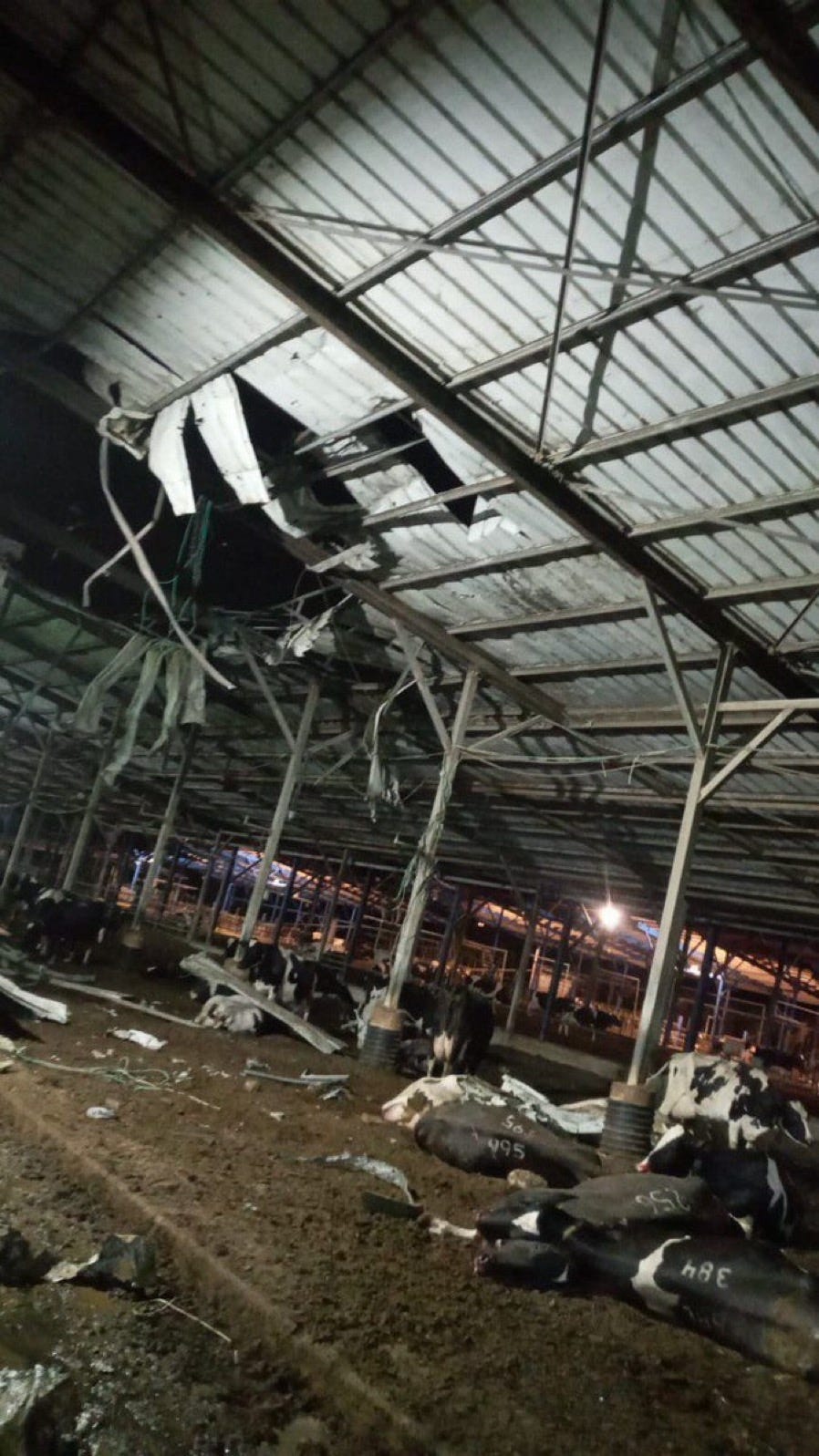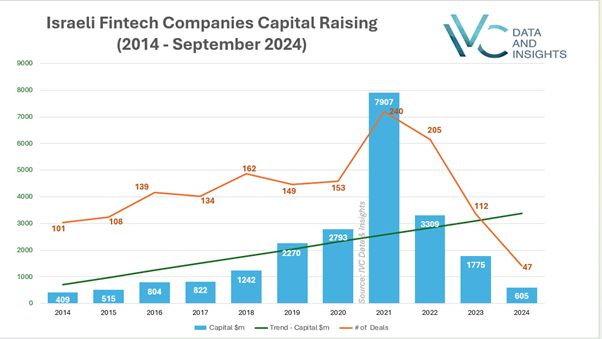DAY 352 OF THE WAR: Hezbollah Responds to Beeper Attack, Hostage Deal, Netanyahu Speaks to Defense Committee, Trump Talks to Jewish Audience
Tel Aviv Diary September 22, 2024
Last night, just before I went to sleep, my phone began buzzing. There were reports of widespread attacks on new areas of the Galilee, including Emek Yisrael, home to the Ramat David Air Force Base. By the time I woke up this morning, additional attacks had occurred both in Emek Yisrael and in what is known as “the Krayot” (the townships), a cluster of Haifa suburbs located across the bay
.
One rocket struck a residential building in Kiryat Motzkin, wounding three people. Another rocket hit the community of Moreshet, destroying two buildings, but thankfully, no one was injured. Several cows were killed when a cowshed (refet) in Kiryat She'arim was hit. Additionally, there was one tragic incident, where a 17-year-old driver, startled by the air raid sirens, crashed his car into a divider, resulting in his death and the injury of other members of his family
.
Hezbollah's response to Israel’s recents operations in Lebanon was more limited than expected, with no attacks targeting the country’s central region thus far, contrary to initial fears. Hezbollah promptly stated that last night's attacks were in retaliation to the beeper explosions, and beyond that, it was 'business as usual.’
The Israeli government's strategy appears to be focused on exerting maximum pressure on Hezbollah, with the hope of persuading Nasrallah to severe the connection between the conflict in the North from the ongoing war in the South and Gaza. Whether Hezbollah will acquiesce remains uncertain, but that seems to be Israel’s hope. Here is how Hezbollah has responded so far:
Hezbollah Deputy Secretary-General Naim Qassem, at the funeral of Ibrahim Aqil: “Israel's economy will collapse, and we will not stop the war. The response that occurred was just the first; not only will people not return to their homes, but more settlements will come under the range of fire.”
Meanwhile, political activist and negotiator involved in Gilad Shalit’s release from Hamas captivity, Gershon Baskin, claims to have brokered an agreement with Hamas. This deal reportedly secures the release of all hostages in exchange for ending the war and releasing a specified number of terrorist prisoners. Interestingly, a spokesperson for the right-wing Tikvah Forum representing a number of hostage families, expressed support for a deal that would end the war and secure the release of all hostages. Most members of the Tikvah Forum are parents of younger male hostages (primarily soldiers) who would not be freed in the initial phase of the proposed multi-stage plan, which has yet to materialize.
NETANYAHU SPEAKS AT DEFENSE AND FOREIGN AFFAIRS COMMITTEE
Today, there was a meeting of the Defense and Foreign Affairs Committee, during which Prime Minister Netanyahu addressed the following key points:
1. Netanyahu shared that the government is discussing “the Generals' Plan,” (The proposal raised by a group of retired generals to relocate the entire population of Northern Gaza and after that proceed to clear that area of Hamas), as well as other plans and additional ideas. He added, every potential plan will have to include humanitarian aid, which is a central component.
2. Regarding Defense Minister Gallant: Netanyahu was asked by Knesset member Meir Cohen if he intends to fire Gallant. Netanyahu evaded the question.
3. Military rule [in Gaza]: Netanyahu said that from his perspective, military rule by Israel is not the goal. It's a means, not an end. We don't want to control or hold the territory, nor to annex it. We won't annex Gaza. Netanyahu added that he still believes the advantages of Military rule outweigh the disadvantages with the Palestinian Authority. And while they [the PA] shouldn't be in Gaza, it's not right for us to act to collapse the PA in the West Bank.
4. Hostage deal: Netanyahu asserted there are vectors of pressure from “both sides.” The first deal, he said, was made possible due to significant diplomatic and military pressure on Hamas. Moreover, as long as the narrative is that we are preventing a deal, Sinwar can stall for time.
Committee members asked Netanyahu about the plan that was reported by Gal Hirsch, who is in charge of the hostage negotiations and presented an “all for all” proposal. Netanyahu contended that proposal was Hirsch's private idea and he knew nothing about it. Furthermore, Netanyahu asserted he “fully accepted Biden's proposal, but Sinwar requested 29 changes to the document. Only applying pressure will change the equation from Sinwar's perspective.” Netanyahu also shared that he believes that half the hostages are still alive.
5. Regarding Hezbollah: Netanyahu did not speak about a deep or comprehensive operation stating: “We are focusing on distancing and reducing their capabilities.” He mentioned his intention to return the residents of the North to their homes, but did not commit to a timeframe. Mainly, Netanyahu discussed the strategic goal of severing the connection between Gaza and the North, aiming to compel Nasrallah to release himself from this equation. Netanyahu indicated that the military action would continue but remain limited, clarifying: “We will continue until we achieve the goal, destroy launchers," and among other tactics. However, Netanyahu stopped short of making big promises. In other words, Netanyahu refrained from making grand promises, avoiding the error of promising a complete victory— as he has repeatedly done in the past regarding Hamas and Gaza.
6. Netanyahu on Britain and France: Netanyahu referenced a difficult conversation with Macron and asserted that France has been acting contrary to their statements.
7. On Hamas in the West Bank: Netanyahu reported that under his directive, the IDF is exploring strategies to address Hamas' armed activities in the West Bank.
8. On the Temple Mount: Netanyahu claimed that three previous Ministers of Public Security allowed Jewish prayer on the Temple Mount. The status quo has been maintained, he contended. It’s crucial not to ignite the Arab world further.
HERZOG’S BREAKING NEWS
President Herzog made headlines today during an interview with British Sky News, where he stated that the Hezbollah commanders killed on Friday had been actively planning a land attack on Israeli settlements along the border. Additionally, Herzog expressed his surprise and disappointment with the new Labor government in Great Britain. While I understand the Israeli government's dissatisfaction, having listened to a debate in the House of Commons six months ago, I anticipated challenges should Labor come to power and am surprised that our government was not expecting the change.
CABINET MEMBERS REQUEST FLIGHT TO UMAN
At this morning's cabinet meetings, certain cabinet members wanted to raise the issue of facilitating travel for the ultra-Orthodox to Uman, Ukraine, for pilgrimages to the gravesites of their revered Rebbes. Thankfully, Netanyahu emphasized that Israel has more pressing issues to address at the moment. It's astonishing that some individuals, who contribute so minimally to our national defense, believe this is a matter requiring our attention at this profoundly challenging time.
TRUMP
Last week, former President Trump addressed Jewish donors both at a conference on antisemitism and at the Israeli American Council. These events presented Trump with a significant opportunity to bolster his support within the Jewish community. I have long held the belief that American Jews typically vote based on symbolic politics, with antisemitism being a key issue. Historically, since the Roosevelt era, Jews have predominantly voted for Democratic candidates over Republicans—despite often having economic interests and, occasionally, stances on Israel that align more closely with Republican candidates.
My explanation for Jewish support for Democrats has been that Republicans were historically viewed as the party of exclusion, often linked to country clubs where Jews were unwelcome, and having loose ties to far-right elements with antisemitic views. However, this year there was a genuine possibility for change. Since October 7th, the level of antisemitism emerging from the left has been unprecedented in U.S. history. As the left is primarily identified with the Democratic Party, there was potential for a major shift in the upcoming elections.
While Republicans have traditionally been linked to antisemitism, they are no longer seen as the primary source—though some figures, such as the gubernatorial candidate in North Carolina, still harbor strong antisemitic views. This year, it has been the Democrats who have been most closely associated with antisemitism. Coupled with Trump’s strongly pro-Israel rhetoric, there is real potential for a shift in Jewish support.
However, Trump, being Trump, made two significant mistakes in his speeches. The most egregious was his statement, “I haven't been treated right.... If I don't win this election... the Jewish people would have a lot to do with the loss,” which implied that Jews could face repercussions from his followers if he were defeated. The second misstep was his assertion that Israel and American Jews must defeat Kamala Harris, effectively calling on a foreign state to meddle in U.S. domestic politics. Trump also cautioned that Israel wouldn’t exist in two years if Harris were elected, disregarding the agency of Israelis in their own affairs.
To sum up, Trump continues to be his own worst enemy, undermining his potential to garner broader Jewish support through his controversial and damaging remarks.
PALESTINIAN-AMERICAN AGAINST EXTREMISM
The cases of clear antisemitism both in the US and Canada continue and the identification of those who care about Palestinians with Hamas is certainly disturbing. Palestinian American humanitarian activist, Ahmed Fouad Alkhatib, whom we frequently cite, shared the following video with this statement:
Overt, clear, explicit, and unequivocal support for and endorsement of violence and terrorism in the name of “resistance” in the United States is the absolute most anti-Palestinian form of activism that one could do. “By all means necessary,” coupled with banners that literally say “Long live October 7” in Arabic, leave no room for what has been known for some time now: fanatic, pro-Hamas, pro-Hezbollah, pro-violence extremists have taken an oversized role in the “pro-Palestine” movement, severely undermining and harming the very cause they allege to care about.
These voices must be jettisoned, isolated, undermined, and separated from real and genuine activism to promote Palestinian rights. This will require proactive efforts by the mainstream voices within the pro-Palestine movement to speak up and out. Palestinian, Arab, and Muslim-American organizations have a role in ensuring that pro-Palestine advocacy is not taken over by violent extremists who are the worst possible activists and risk sabotaging the entire movement, making the Palestinian cause even more radioactive and toxic than it already is. If this continues unchallenged, Palestinian voices and pro-Palestine solidarity will also continue to be ignored, suppressed, and not taken seriously. Speak up now!
ECONOMY
Over the past decade, the Israeli fintech industry has experienced remarkable growth, positioning itself as a global hub for financial technology innovation. According to IVC Data and Insights, there are currently 743 active fintech companies in Israel. Between 2014 and September 2024, these companies raised an impressive $21.7 billion across 1,550 deals.
During this time, Israeli fintech companies achieved significant success in the global market, with exits totaling $10.73 billion through 166 mergers, acquisitions, and IPOs. Several Israeli fintech companies have emerged as global leaders in their fields, including Payoneer (Payments), Lemonade (Insurtech), eToro (Social trading/cryptocurrency), Fundbox (Credit and lending), Next Insurance (Insurtech), and CyberArk (Security)
.
However, since 2022, Israeli fintech has experienced a noticeable slowdown in capital raising and the number of deals. By September 2024, fintech companies in Israel had raised $605 million through 46 deals, reflecting a decline in both the volume and size of investments. This downward trend is not unique to Israel; globally, fintech funding saw a sharp drop of 42%, falling to $35.45 billion in 2023, as reported by S&P Global Market Intelligence.
BUSINESS
Pickommerce
Pickommerce, a company from Petah Tikva, has completed a capital raise of approximately $3.4 million to finalize the development and marketing of its PickoBot, a robot designed to provide an automated solution for goods collection for logistics centers, distribution centers, e-commerce service providers, and similar businesses. According to Mordor Intelligence, the market for automated solutions in goods handling centers is expected to grow by about 54% annually in the coming years, reaching approximately $9 billion by 2029.
The fundraising round was led by IL Ventures, with participation from Fusion VC, the Israel Innovation Authority, InNegev, and the investment fund of ZIM Integrated Shipping Services. The company was founded in 2021 by Prof. Alon Rimon from the Faculty of Mechanical Engineering at the Technion, Prof. Amir Shapiro from the Department of Mechanical Engineering at Ben-Gurion University, and CEO Kfir Nissim. Pickommerce focuses on addressing a major issue in the e-commerce and logistics sectors: an automatic solution for the "pick and pack" process, which is currently mostly done manually.
Pickommerce has developed a robotic workstation that includes a robotic arm with various collection and gripping tools, a camera, and image processing software powered by artificial intelligence. This system allows the robot to identify the required products, select the appropriate gripping tool, collect the items, and place them in the shipping package. Recently, the system was installed at Habiban Organic Vegetables in Hodaya, near Ashkelon, and has demonstrated the ability to handle organic produce requiring delicate touch.
∞–––––∞–––––∞–––––∞–––––∞–––––∞–––––∞–––––∞–––––∞–––––∞–––––∞
A PIECE OF HISTORY
The Separation Barrier
The idea of building a separation barrier, built along the Green Line and inside parts of the West Bank, began during Yitzhak Rabin's tenure as Prime Minister in 1995. After the Beit Lid bombing, Rabin gave a speech in which he highlighted the need for separation. Rabin appointed an inter-ministerial committee, headed by Police Commissioner Moshe Shahal, to examine the feasibility of establishing such a barrier.
The committee developed initial plans, but before the government could adopt those plans, Rabin was assassinated. Rabin’s immediate successor, Shimon Peres, opposed the plan as he believed it would interfere with the economic integration he hoped for between Palestinians and Israelis. Netanyahu, who became Prime Minister after Peres, also opposed the barrier due to objections from his right-wing base, who favored the annexation of the West Bank.
Ehud Barak revitalized the concept of the separation barrier during his election campaign of 1998, positioning it as a key component of his peace strategy. Before departing for the Camp David Summit, Barak reaffirmed his support for some form of separation, stating:
The fence is essential to Israel in order to guarantee its Jewish identity, and it's equally essential to the Palestinian nation to foster its national identity without being dependent on the State of Israel.
Barak appointed Deputy Defense Minister Ephraim Sneh to further develop the project. At the same time, a fence was constructed around the Gaza Strip. Sneh's plan included several crossing points into Israel. However, the Barak government did not begin construction of the fence. The failure of the peace process dampened Barak's enthusiasm for the plan.
When Ariel Sharon became Prime Minister during the raging Second Intifada, in 2000 he revived the idea of the separation barrier. The Gaza fence had proven effective in preventing infiltrations, and constructing a similar barrier in the West Bank was seen as one of the best solutions to reduce terrorism. Sharon proceeded with the construction despite opposition from his right-wing base. Israel Harel, the head of the Judea and Samaria Settlement Council, declared,
We will prevent with our very bodies the construction of a separation barrier… It would divide the Land of Israel, and this is impermissible.
It soon became clear that the separation barrier would encompass significant settlement blocs, and it received widespread public support. Initially, the American administration opposed the plan, but as terrorist attacks continued, clearly supported by Yasser Arafat, the U.S. shifted its stance. Rather than outright opposition, it focused on influencing the fence's path. While not entirely impenetrable, by 2004 in the areas it was finished the barrier markedly reduced infiltrations in the areas where it was constructed, resulting in a significant decrease in terrorist attacks.
Today’s Zoom Briefing







